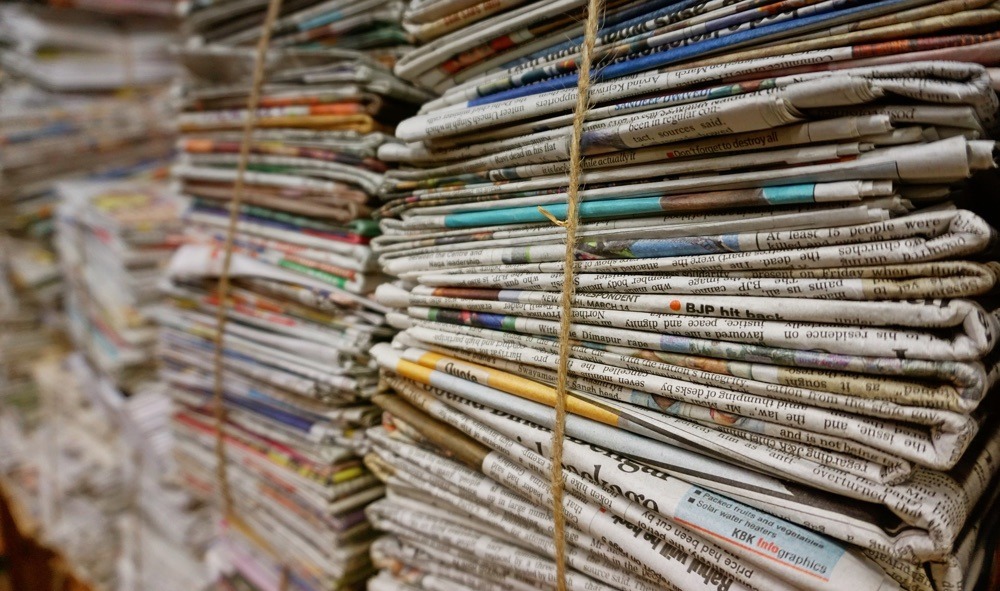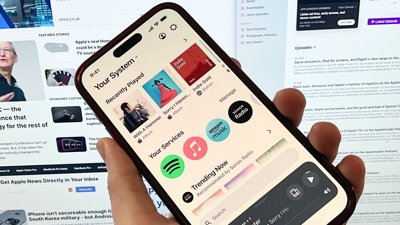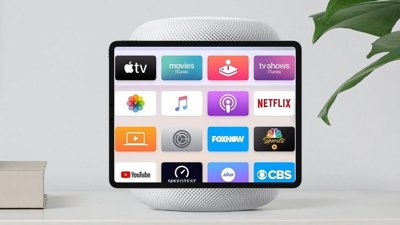Apple is claimed to have interfered with advertising campaigns cellphone carriers in Australia posted in local Chinese-language media outlets, with a report alleging the iPhone producer did not want to be seen as supporting newspapers critical of the Chinese government.
The general manager of The Vision China Times, Maree Ma, was informed in August 2016 that Apple did not want its products to feature in any advertising by carriers in the newspaper, reports The Australian. Ma, who also manages advertising for the publication, notes the last time an iPhone ad appeared was in October 2015, for the iPhone 6s.
"Since then, when Telstra runs their iPhone ads, they do not place any with our paper," said Ma. "There was a campaign last year in 2016 we missed out on."
Carriers still advertise with the newspaper, but leave out any advertising that show Apple products, Ma says. Marketing efforts that do show the iPhone still appear in other publications. Ma believes that, as these ads appear in "Beijing-aligned" or "PRC government-influenced" Australian-Chinese media, The Vision China Times has effectively been "blacklisted" by Apple "for political reasons as they are trying to protect their business in China."
The Epoch Times has seemingly been targeted in a similar way, with advertising from carriers placed without any reference to iPhones. In October 2015, the organization was expecting to gain a contract for the iPhone 6s on Telstra along with other outlets, but the deal failed to go through.
"We have never had issues with Telstra, but then at the last minute they had to pull out," a spokesperson for the Epoch Times advised. "Then we asked why. (Our advertising agent) said it's actually from Apple."
John Fitzgerald, a Swinburne University professor of Chinese soft power, suggests this is evidence that China is attempting to increase its media control outside its borders. "I would not be surprised if advertisers doing business in China were considering where their products appeared, considering Beijing's strict media controls," said the professor.
This is not the first time that the Chinese government has applied pressure on advertisers to stop advertising in critical publications. In 2014, a Hong Kong newspaper claimed two London-based banks stopped advertising after receiving such pressure, though the banks and a Chinese government official denied this was the case.
China is a major market for Apple, bringing in $16.23 billion of revenue in the last quarterly financial results, and poised to overtake the revenue generated by Europe. In order to operate in the market, Apple has to appease the country's government, one that is known to censor media it deems unacceptable or too critical.
One example of China's censorship activities against its critics is the demand received by Apple in December to pull the New York Times app from the regional App Store. The English and Chinese versions of the app were taken down on December 23 for allegedly violating local regulations, at a time when the publication was working on a number of stories about "hidden perks and subsidies" provided by the government to local producers.
Apple has also previously pulled access to its iTunes Movies and iBooks stores, with the store closures mandated by a government agency in an attempt to control media distribution.
 Malcolm Owen
Malcolm Owen




-m.jpg)


-m.jpg)







 William Gallagher
William Gallagher
 Amber Neely
Amber Neely

 Andrew Orr
Andrew Orr

 Christine McKee
Christine McKee
 Andrew O'Hara
Andrew O'Hara








17 Comments
When it comes to the dollar, there are no lines in the sand.
Bottom line: these newspapers are complaining about Apple not funding their criticism of China. Apple is not in business to support every agenda on the planet.
Apple does what China tells them to do. Any company wanting to do business in China does the same.
This is a rather difficult argument to prove. It's actually a bit of self-aggrandizing from those publications. While I don't doubt that the Chinese Government keeps an eye on foreign press, it's a bit tenuous to suggest that the Chinese Government is trying to strangle these publications with such weak and passive means.
What is it with Apple and Australia? First the banks and Apple Pay, and now this. Whatever happened to that "come'n sigh goodai" spirit?